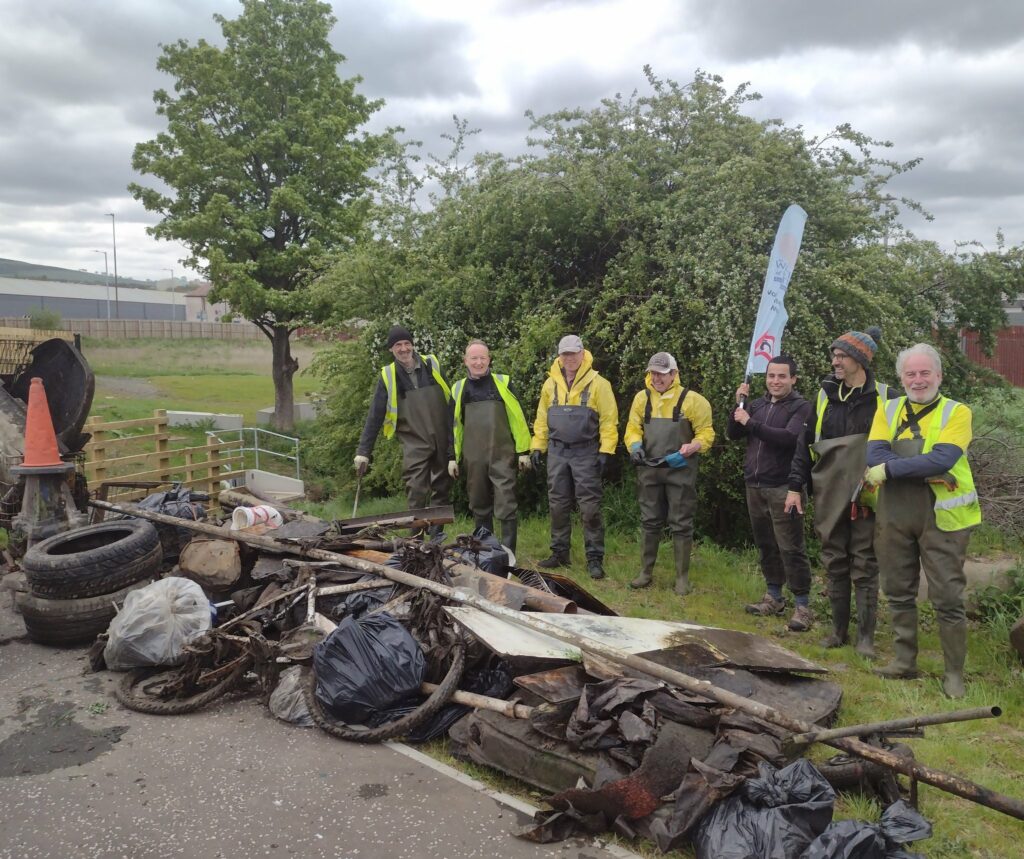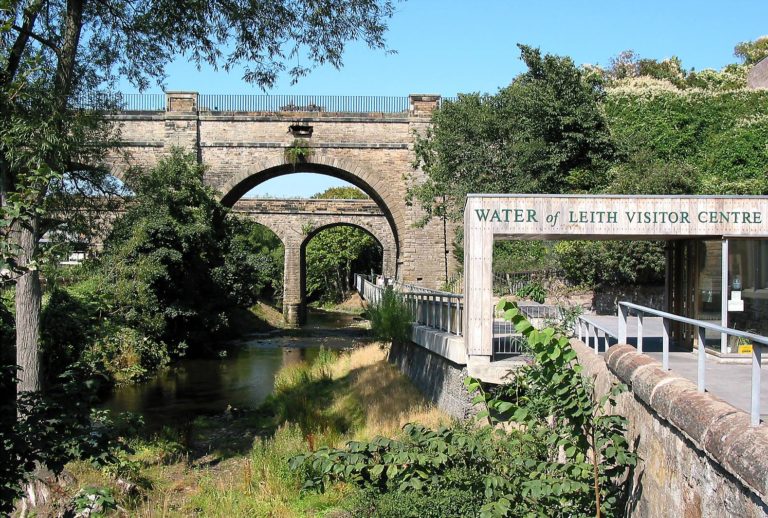“The River has Wisdom and Feeling and Flow. The Only Thing Certain is Change” – Robert J Landy
It’s a slightly strange world having a month off work and returning to an office space without your partner in crime for the past 3yrs. Partner in crime probably does a disservice to Charlotte Neary, our longest serving member of staff that after 23 yrs moved to the Forth River Trust. As if you were ever in doubt you could always ask Charlotte, if you wanted to know what annual task needed to be done next you could ask Charlotte or if you needed just a moment of distraction from something you could guarantee Charlotte would have a tale of hill running, dramas of kids at home or just her raucous laughter.
So needless to say the first week back was a bit of a grind work alone, replying to many emails, making plans with the spray team to go hunting Giant Hogweed, restocking on biscuits for tasks and prioritising where to take the volunteers to make the world better than when we arrived. But like the river, work has been flowing nonstop since and it’s been busy as ever with the good weather and low river levels meaning we’ve been able to really get into those hard to reach places for our spring clean and even onto the Murrayburn tributary which led to this monster pile of rubbish with more to come (see image)
The running total for 1 April – 29th of May as it stands is:-
Water of Leith Volunteers
20 Tasks – 546 hours
4 Biological surveys and river fly training – 77 hours
50 River Patrols – 43 hours
Community & Corporate Groups
11 tasks – 432 hours
Grand total
35 tasks – 1098 hours spent conserving and enhancing the Water of Leith
Hopefully you are wondering what all these figures and tasks mean:-
Giant Hogweed
Except for the Rocheid Path section, (due to bank restoration work) we’ve waded from Leith to the Redhall Weir (Colinton Dell) and have sprayed several thousand plants including one of the seed sources up by Hermiston Gait. For every plant sprayed it contributes to the long term biodiversity of fauna and flora on the river with areas not being overrun by invasive species and keeps the banks safe for users. Here’s this year’s heat map to date showing the hotspots of where we have been spraying most
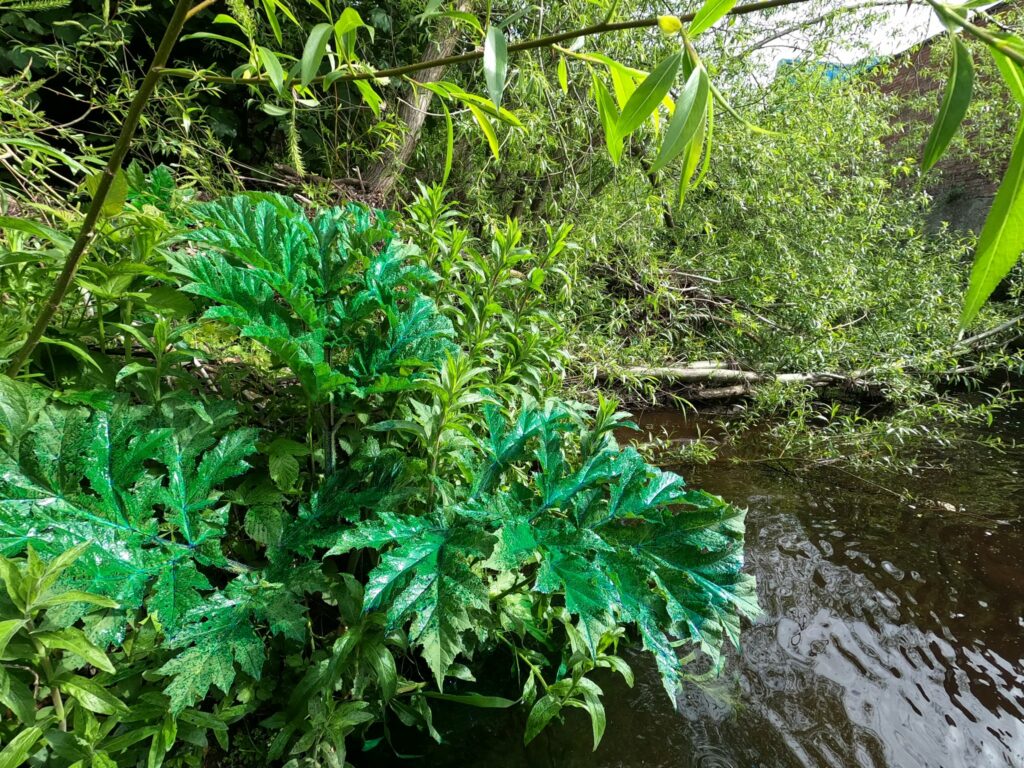
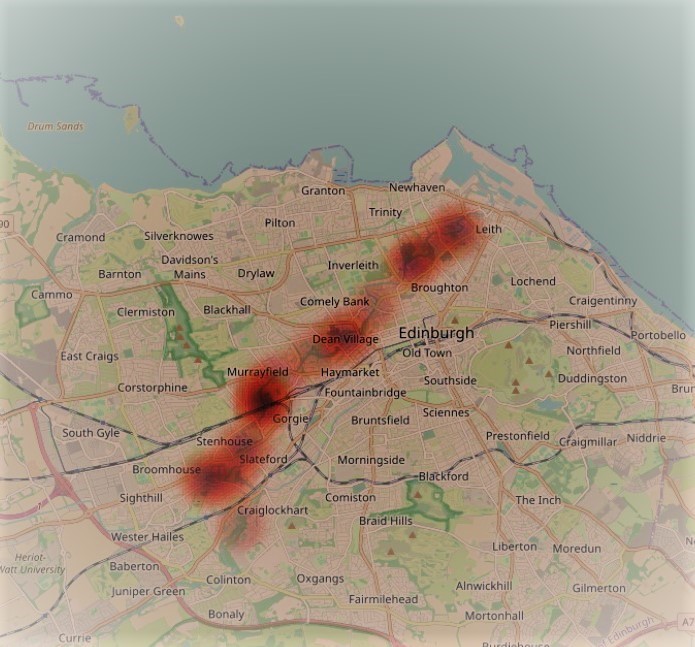
Clean Ups
Almost 406 hours of the grand total has been spent removing rubbish from the river, banks, parks and other spaces near the river by our dedicated volunteers. I would love to direct these hours into something more satisfying however as 80% of waste in the oceans comes from land we’ll keep gong until the litter can be stopped at source.
Stonefly Training
The UK has over 3,800 different species of invertebrates that spend all, or part of their lives in rivers, ponds and other freshwater habitats. These include mayflies, stoneflies and caddisflies (collectively known as riverflies) as well as dragonflies, water beetles and pond skaters.
Freshwater living invertebrates play a vital role in maintaining clean water- they help to break down and filter organic matter and provide a food source for fish, birds and mammals. Their presence is the standard indicator of the health of the habitat they live in. However, many of our freshwater invertebrates are declining in the face of pollution, invasive species, abstraction and development.
Therefore in partnership with Buglife, thirteen of our volunteers have been trained up to become Guardians of our river and will be doing regular river surveys of the invertebrates in different stretches of the river. This is vital work to help develop our understanding of the river and it’s health , more details of the project here https://www.buglife.org.uk/projects/guardians-of-our-rivers/
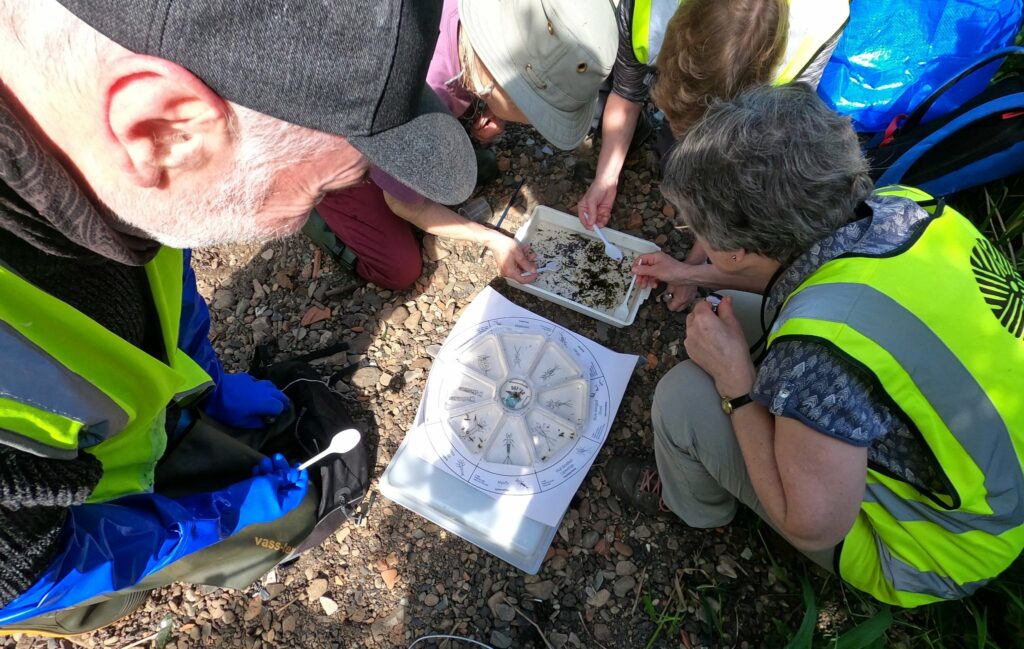
Corporate Tasks
If you follow any of our social media feeds you’ll have noticed lots of thank you to corporate teams that have been coming out over the last few months and experiencing the river. With their help we’ve been focusing on a lot of the walkway maintenance allowing us to trim back the edges, paint rusty railings, open up drainage and other tasks that many hands can make light work of. At the same time it’s also a very useful source of income that helps us pay for tools, wages and general running costs of the Trust


